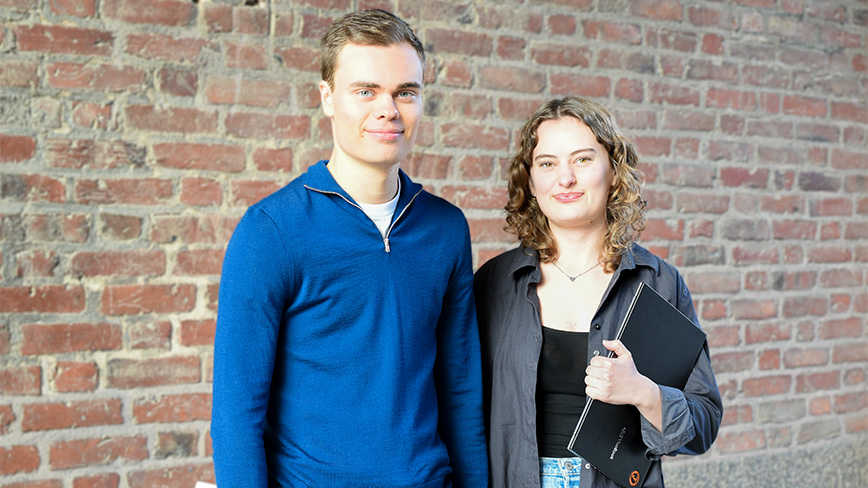Students given a crash course in disaster medicine

Packing wounds, carrying injured people, and dealing with theatrical blood are not part of a computer engineer's everyday life. But for the students developing a game to practice tactical medicine, it is. At least for one day.
In the software engineering course, students get to choose projects based on pitches various companies made to the students during a class in December 2022. One of the assignments presented was the Gamification of Tactical Medical decisions by the company CrashCourse and the Center for Disaster Medicine and Traumatology in Linköping.
The task is to build a strategy game for mobile devices. The game aims to help people make the best tactical and medical decisions during emergencies. Decisions that can help save lives. As part of the project, the students had a unique opportunity to attend a medical course called Tactical Emergency Casualty Care, which is usually only held for blue-light personnel.
“The course should be at the heart of the game. But attending the course also increases the student's understanding of the subject so they can develop a realistic gaming experience,” says Lukas Berg, project owner and founder of CrashCourse.
The course guidelines will be used to assess the players' behaviour. The students have a database of questions for different situations that will be used in the game.
“At the end of the semester, the goal is to launch a game you can download wherever you look for apps,” says Lukas.
During the medical training, the students learned how to stop bleeding with a tourniquet, pack wounds, how best to carry an injured person, why safety is important and how to help remotely.
The next step for the students is to create a game that teaches them how to act tactically and medically correctly.
“We hope the game will encourage players to learn more about tactical medical care. We also hope this can start a collaboration with the Center for Disaster Medicine and Traumatologyin Linköping for further development of games and software,” concludes Lukas.
Text: Charlotta Alnersson
Related news

How to stop cyber-attacks with honeypots
In the ever-evolving landscape of cyber warfare, defending against human-controlled cyberattacks requires innovative strategies. A recent study conducted by students at KTH delves into the realm of cy...
Read the article
New internship course gives students valuable experience
The course has the potential to impact not only the students' future but also KTH's reputation as a leading educational institution in engineering.
Read the articleYou have previously denied the display of content of the type "External media". Do you want to show content?
"It made me realise how much is in our hands”
At KTH, we have devoted teachers who go above and beyond daily to inspire, educate, and mentor the next generation of engineers, scientists, and innovators. Listen to what a few say about moments sign...
Read the article